The response of German society to the massive influx of refugees into Germany in 2015 and 2016 has been generally impressive and German philanthropy has played an important role. Charles Keidan talked to Michaela Wintrich of the Hans Weisser Stiftung at the Association of German Foundations’ conference (Budesverband Deutscher Stiftungen) in Osnabruck earlier this year. They discussed how the foundation has adapted its work to the integration of young refugees. Leading a mid-sized German foundation, Wintrich describes how the work of coping with the new arrivals might offer a clue to resolving some of Germany’s long-standing social problems.
Could you tell us about the Hans Weisser Stiftung and your role in it?
I’ve been the executive director for a little over a year and a half now. The foundation has been around under a different name since 2002, and started off with grants to graduate students who were going abroad, mainly to universities in the US and UK. Hans Weisser, who set up the foundation is an entrepreneur from Hamburg with very deep roots in the region and the city.
As a young man, he went from post-war Germany to New York and his experience of the difference in perspective there, the optimism, the dynamism and so on, was life-changing, and he wanted to make that happen for other incoming managers and entrepreneurs.
How has that changed?
He had started giving more in the field of education for underprivileged kids and youth and, roughly three or four years ago, he decided to make that the second leg of the foundation’s mission. He changed the name to its present one and set up a bigger board with the skills needed to run a foundation.
It comprises six people including him and, at some point, they realized that in terms of the money and effort they wanted to put in, they also needed to hire someone.
So right now, there’s one staff member, who you’re speaking to, and we spend roughly one million Euros per year. That annual budget puts us in the top 30 per cent or so of German foundations but there’s a huge variety among that 30 per cent. At the top, you’d have the big organizational foundations such as Bosch, Mercator, Bertelsmann.
You’ve now begun to work with refugees. Why did that start?
We decided we did not want to support all kinds of work for underprivileged kids in education, but to concentrate on one subset of young people, and based on the founder’s convictions and one of the biggest needs in Germany, we ended up settling on supporting youth during the transition from school to work – professional training, apprenticeships, etc.
We wanted to tackle the issues within these five or six years of the life of a person who typically has a harder time than middle-class kids and we realized that one of the key problems is that employers are not willing to give these young people a chance.
They won’t hire them or give them an internship to prove that they’re motivated, because their CV is less than perfect.
They don’t have the grades, they might not have the social skills to present themselves well and so it’s very hard for them to even get a foothold in the labour market.
Then all of a sudden, in 2015 we started to see a huge influx of refugees into that group, with very similar problems. Their language skills might not be up to par, so they’re not ready to work in a professional environment. They might not have had a lot of schooling or they might not have had the professional training for the job they really want, they might not know how to behave in a German professional setting yet, or the expectations are very different from what they’ve learned, and there’s a lot of insecurity.
What age would they be typically?
Mostly 15 to 18. All of a sudden, we saw that the same organizations and employers who wouldn’t give the kids that I’ve been working with the time of day were saying ‘there’s so many refugees and we’ve got to do something about this’.
So, suddenly, there’s a door opening up for people lacking qualifications and with less than perfect resumes and that’s where we started working. We thought about whether we should do something specifically for refugees.
Everyone in the German foundation sector was asking that question because it’s a huge issue, but we decided we wouldn’t start something just for this group, but that a certain group of refugees fits neatly into what we’ve been doing and where our experience lies. We also saw that this group might change the game for the kids that we’ve been working with all along.
So the arrival of refugees of a similar age and situation to young Germans struggling to get into the job market has actually allowed attention to be focussed on both groups?
I think there’s a lot of potential to focus on both groups, and solve one problem, but make life better for both groups. I’m not sure that has actually happened, because I think attention and resources shifted dramatically to helping refugees and, in a lot of other fields, too, it sucked funding out of other worthy causes.
If you look at work with the kids that we’ve been working with, or the unemployed, or the homeless, there are a lot of stories of great, properly evaluated programmes that have been around for a long time suddenly starting to struggle, because the funding went elsewhere.
So it was very important to bring the refugees who’d arrived into Germany into the programmes that you were working on?
Exactly. At the moment, the refugees are still a separate group from the young adults we typically work with. You have an influx of people who are 15 to 25, who are technically almost done with schooling and who want to start work, earn money and send it back to their families. They want that feeling of accomplishing something.
But there are also 300,000 refugee children who are, at this point, somewhere in the school system, and as they progress through it, the two groups, the refugees and the kids that we’re working with, will blend, so it won’t be necessary to have separate programmes.
We realize that those who are in the education pipeline have put a finger on the problems that we’ve had for 20 to 30 years, and I think this is a huge opportunity to fix them.
You said that the arrival of the refugees created a shift in public opinion, that people who wouldn’t have necessarily considered employment opportunities for young people with low qualifications, suddenly were willing to do so. Why do you think there was such a willingness among German employers, and also among German foundations to address the question?
I think part of it is human compassion. You realize what these people had to go through to get here, you see the resilience and you cannot help but be moved.
Last week, for example, I talked to someone about how he got from Syria to Germany. He was a teacher at a high school in Aleppo, who decided it wasn’t safe to stay there because his car with his wife and his kid was almost hit by a bomb. He told me how he saved the money he needed, sent his wife and son away to her sister in Dubai and then trekked to Turkey. It took him four attempts to get across the Mediterranean from Turkey. Three attempts failed due to police picking him up or boats wrecking. Two of his friends drowned and he was imprisoned.
Finally, with the last of his money, he made it to Greece, got a fake passport and came to Germany by way of Switzerland. It’s a story that shows you that most of these people were not leaving the country on a whim or because they wanted to exploit our nice social welfare system. They came because they were afraid for their lives, and they tore up their families to find a way to create a future for themselves.
And that created a consensus of the need to help in Germany that crossed political lines?
Yes, but it has been wavering. In 2015, you probably saw the pictures of Germans packing presents and stuff they didn’t need any more and going to train stations and holding up signs saying ‘Refugees welcome’ and applauding the refugees who made it. That is a wave of enthusiasm that is almost surreal because Germans are not that enthusiastic by nature.
Where did it come from?
It really was compassion. Seeing how people are dying in a boat that looks like a nutshell in the Mediterranean, people felt a responsibility to help and that’s something you saw in foundations as well.
I’ll mention another point for my work, and that is that the employers I work with are typically from fields that are in desperate need of employees.
They have slots for professional training and apprenticeships, and they say they can’t find people to fill them. For instance, 40 per cent of people training to be chefs leave the job in the first year. Thirty per cent of craftsmen – electricians or roofers – leave the apprenticeship within the first year.
So these employers are in desperate need of people who are motivated, willing to work hard and stick with it, and what they tell me over and over again is, we can’t find them among German kids, so they are looking at the refugees as people who are motivated to build a life here, and who know that an apprenticeship is one of the most attractive ways to create a legal basis for staying here, because it gives you three years of secure residency, plus two additional years if you finish the programme.
And once you’ve been here for five years and professionally trained, there’s a good chance that you’ll be able to stay if you choose to. So while there is compassion and genuine interest to solve the question of integrating a million people into our country, there’s also a market-based problem that needs addressing, and refugees potentially offer a new way of solving it.
So your foundation is trying to convert that compassion into something that can both help solve a social and an economic problem?
The immediate work we’re doing is putting the compassion, the willingness to help people and the market failure of demand and supply in apprenticeships together.
If you can find a solution to that issue, maybe you can transfer it to the other underlying question of the 50,000 young people each year who drop out of school, who can’t find employment, who then move into social welfare systems and typically don’t get out of them in the course of their lifetime. That group has been here for at least the last 20 or 30 years.
How do the programmes you’re involved with work?
In total, we’re working on 15 programmes, with different levels of involvement. Three of them support refugees specifically. One of those we’re more closely engaged with is a social enterprise called Refugee Canteen.
A young man who had worked in and started several bars and restaurants himself decided that he wanted to help the refugees, and also knew of the dire need for apprentice chefs.
So he created a sort of boot camp which involves 14 weeks of working in a kitchen, learning the ropes.
He then partners with the high-end restaurants and hotels in Hamburg, who take on these refugees as apprentices, and after another 14 weeks hopefully this turns into a regular apprenticeship.
What is the foundation’s role?
We decided to fund the founding phase of Refugee Canteen, basically Benjamin Jürgens, the founder’s, salary for the first year and helped him with starting an organization.
I took him to our lawyer to discuss the best legal form for what he wants to do. We had workshops around what’s sponsoring, what’s a donation, how you have to deal with these things.
We tried to help him get more contacts, particularly with other organizations who help people transition into professional training, because, while he had contacts in hotels and restaurants, that was the part of his model that he had no experience with.
Refugee Canteen had its first cohort finish in April, and now we’re providing funding for a second cohort of refugees that will run over the summer.
And at the moment, we’re trying to help him secure long-term funding.
What level of involvement do you have with the other projects?
Typically, we work with non-profit organizations but there isn’t really one model. We meet them and if they show us that they’re tackling one of the problems youth face transitioning from school to work, and if they can show that they’ve found a good way of doing that, we’re interested in working with them.
Sometimes, we basically just write the cheque and a year later we talk about how things went and whether the goals we set together could be reached. That’s probably not the majority of projects, more likely we’ll have a conversation with the head of a project: What’s the next challenge for you as an organization? What do you need to do your work more professionally? Sometimes that’s funding for the one person who needs to be on board to tackle that next step.
Sometimes it’s work around their model, say, how to improve working with volunteers, and sometimes it’s introducing other organizations who do the same work.
How involved is your founder in this?
Not very much. He’s 80 years old now and he spent the last few years setting up the foundation in such a way that he feels comfortable with leaving us – meaning the board and me – alone because he wants to feel like things are in good hands. He’s still part of board meetings, he still gives us his opinion and he will call if he has good ideas or he hears about projects.
Benjamin Jürgens was the first grantee that we decided on together. Refugee Canteen was my first suggestion to the board, based on many conversations about their framework and the challenge they’d identified. And I think it says something that the first thing we decided on together was a refugee programme at the beginning of 2016.
My founder met Benjamin, he was deeply touched by him – I mean how often do you tell someone you’ll support them unconditionally for their first year based on a conversation with them and hearing their passionate idea? Being able to support great ideas and entrepreneurs, investing in a yet unproven approach to a new challenge – that’s the luxury of what we do in philanthropy.
How typical is your approach? We’re here in Osnabruck at the annual German Foundations conference and a number of people have spoken to me about their work on refugees. How do you see the work of the German foundation sector on the refugee question?
The question of what the role of foundations is in dealing with the immediate needs of a million new arrivals in Germany, and later on with integrating them into life and the labour market was one that we talked about a lot in 2015 in the education working group – as you’ve seen, there are working groups for particular areas under the Bundesverband umbrella – and I think most of the working groups asked themselves, what’s our role in this? What can we do?
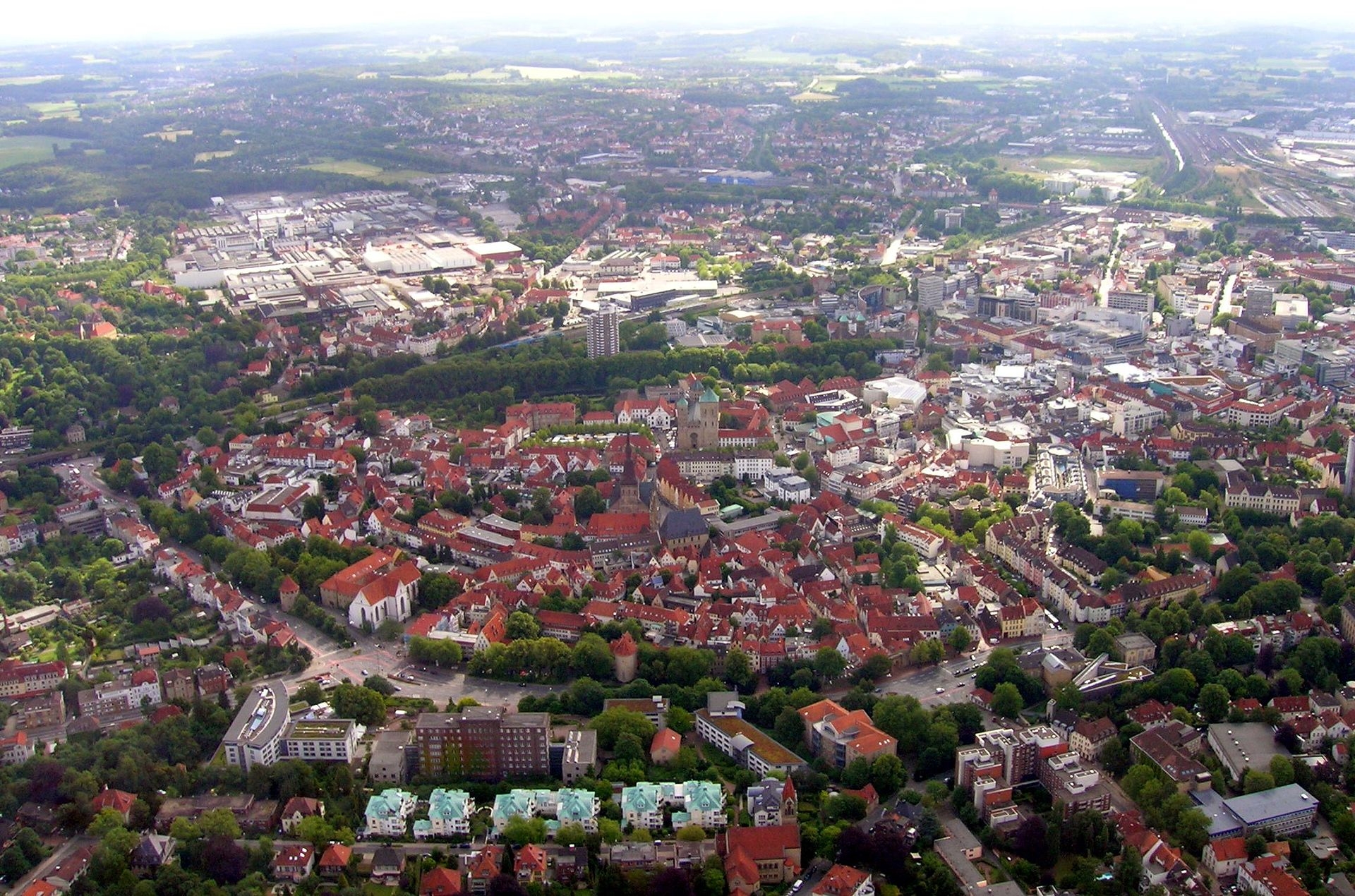
Osnabruck, Germany, the site of the 2017 Association of German Foundations’ conference (Budesverband Deutscher Stiftungen).
And how much of what we’re doing should we shift from what we’ve been involved in for years or decades to this new topic? It’s difficult because you can only spend money once, and you have to decide what the priorities are. And what happens to the organizations that we’ve been funding so far?
My impression is that in 2015-16, a lot of foundations did something similar to what we did. They decided not to shift everything they did, but to focus on a couple of efforts that seemed within the range of what they knew how to do best.
The Bundesverband had an initiative with a little sticker that allowed you to mark that you were part of the effort of helping integrate refugees in Germany, so I know that they made an effort to connect different foundations and collect best practice on what foundations have been doing.
Those that settle in Germany will retain or form links with their own countries, so there’s an international dimension to the refugee story. A few people here have remarked that German foundations have been notoriously parochial, with very few funding internationally. Do you think this may mark a change in the attitude of German philanthropy?
I hope so, but I don’t see a shift. The efforts I’ve been seeing, and our own efforts are focussed on how to support refugees within Germany. Certainly there are some bigger international organizations, who coordinate efforts across countries or who look at the reasons why people are leaving their countries in the first place.
But typically if you look at the German foundations at a gathering like this, they do not get involved until there’s a group of refugees actually in the country and that can be supported in one way or another. I think there are two reasons for that. One is that the majority of foundations is rather small.
With 70 percent of them having less than a million Euros to spend per year, they do not have the means to set up or support work abroad in a meaningful way. The second reason is that the mission of a German foundation, particularly if it’s a private one, is usually defined by the founder’s life. Very often, these are tied to the city or region that person lives in and many foundations therefore are legally not allowed to fund work outside of Germany.
Could you imagine that, in 10 or 20 years, some of those refugees aged between 15 to 22 you’re involved with will end up working in a foundation or sitting on their boards?
I desperately hope so. The foundation sector has not seen a lot of diversity, whether it be in gender or age or background, but that has started to change.

‘The foundation sector has not seen a lot of diversity, whether it be in gender or age or background, but that has started to change.’
There are more women, there are more young people, but when it comes to people of different ethnic backgrounds, or people who didn’t grow up in Germany, we don’t see a lot of diversity.
For some reason, the field of foundations has not been attractive to those groups yet. I think we always have to ask ourselves, why is that? And what can we do to change it, because certainly we don’t want to end up in our work where we talk a lot about these groups, but not to them.
So maybe down the line it would be great if I knew that some of the young people that we supported actually become part of the work that we’re supporting, or part of the work that we’re doing to support organizations that work with them.
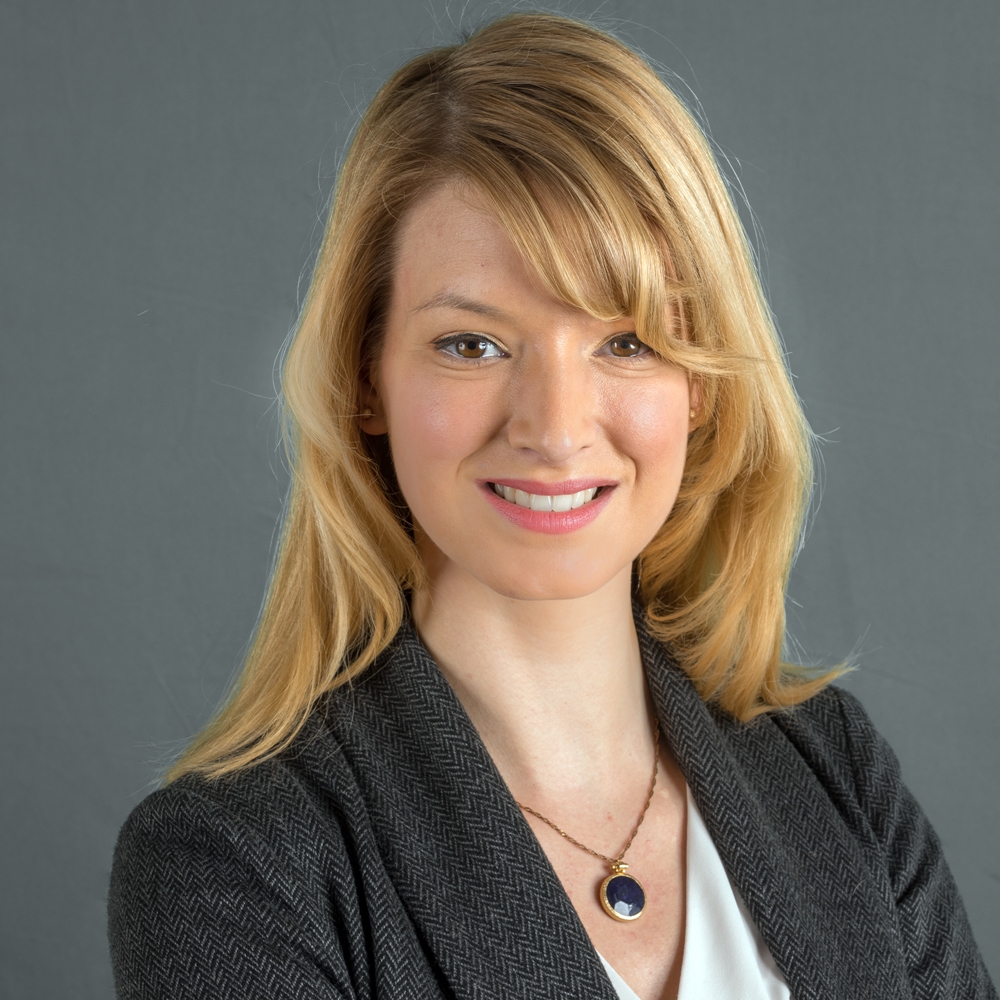


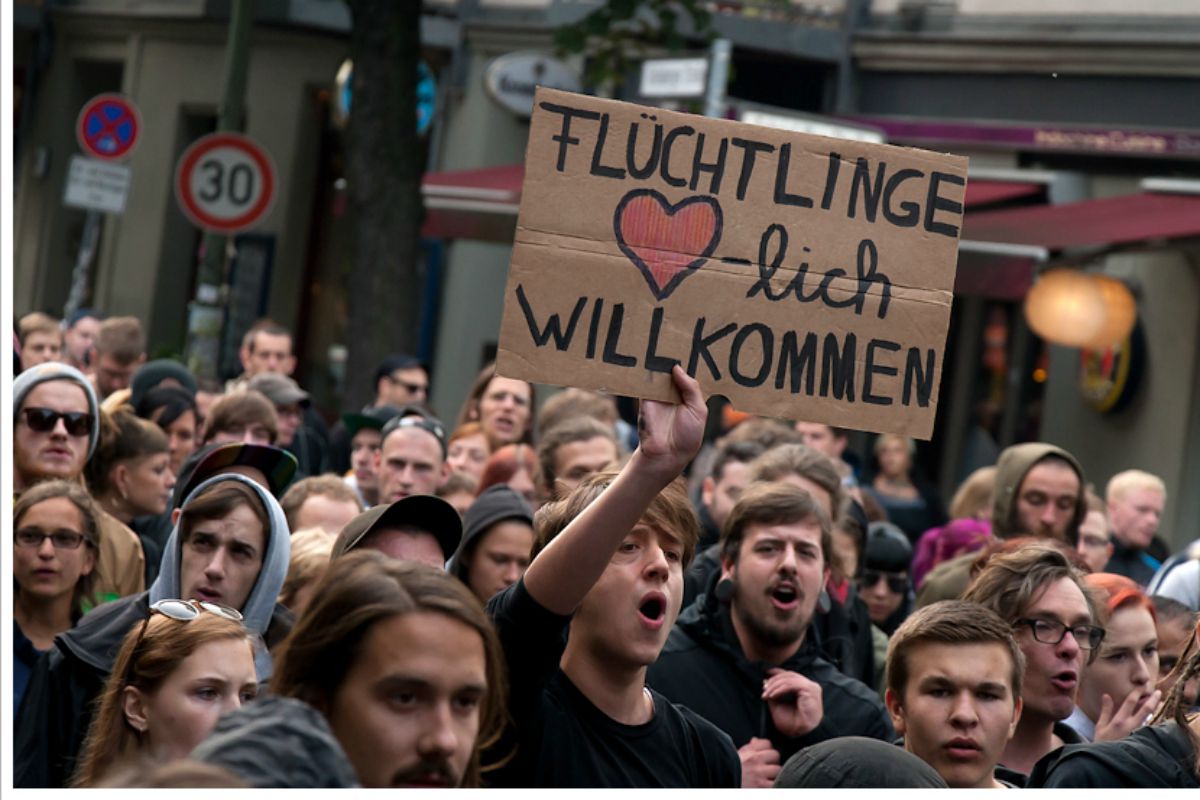
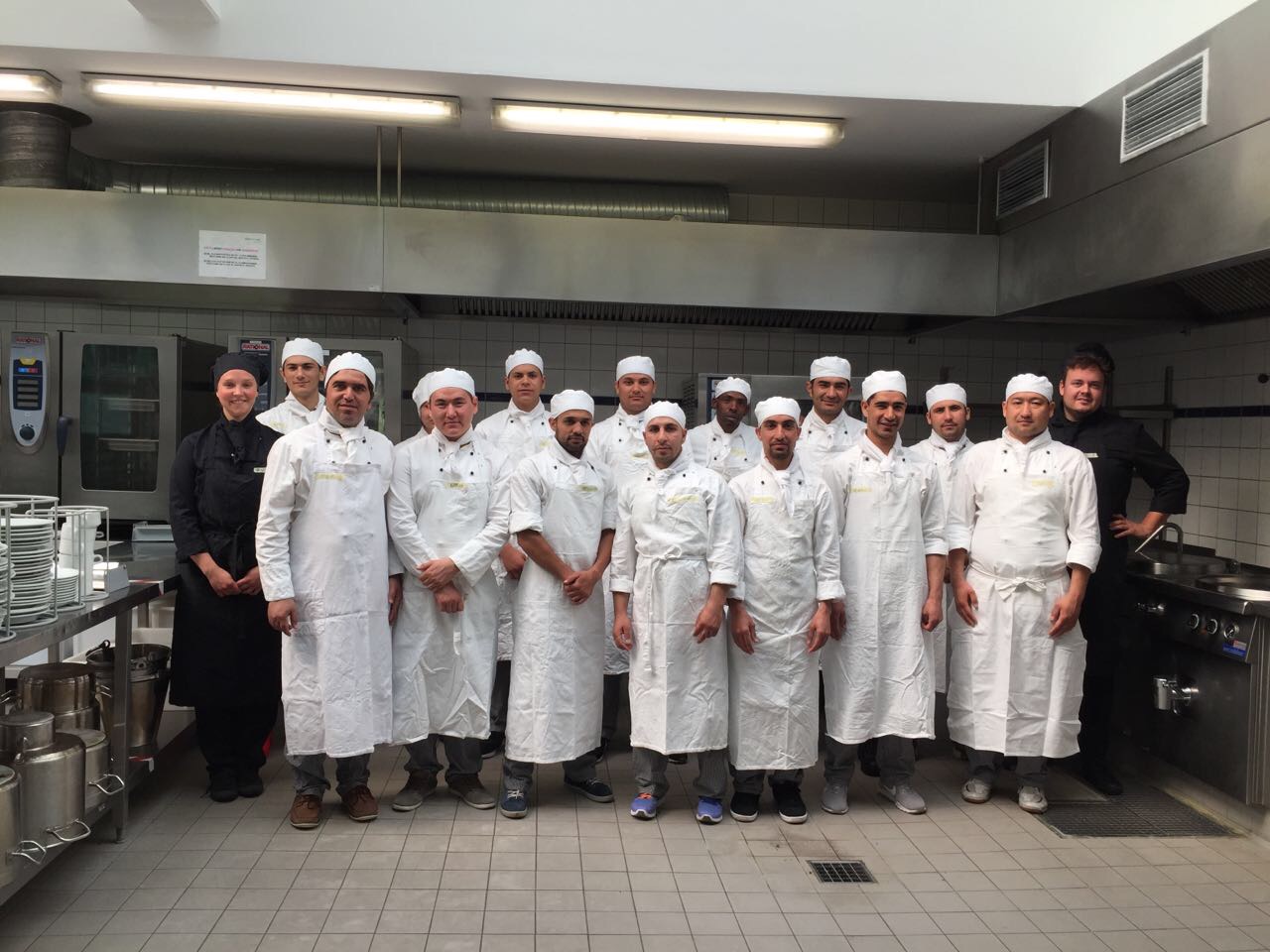
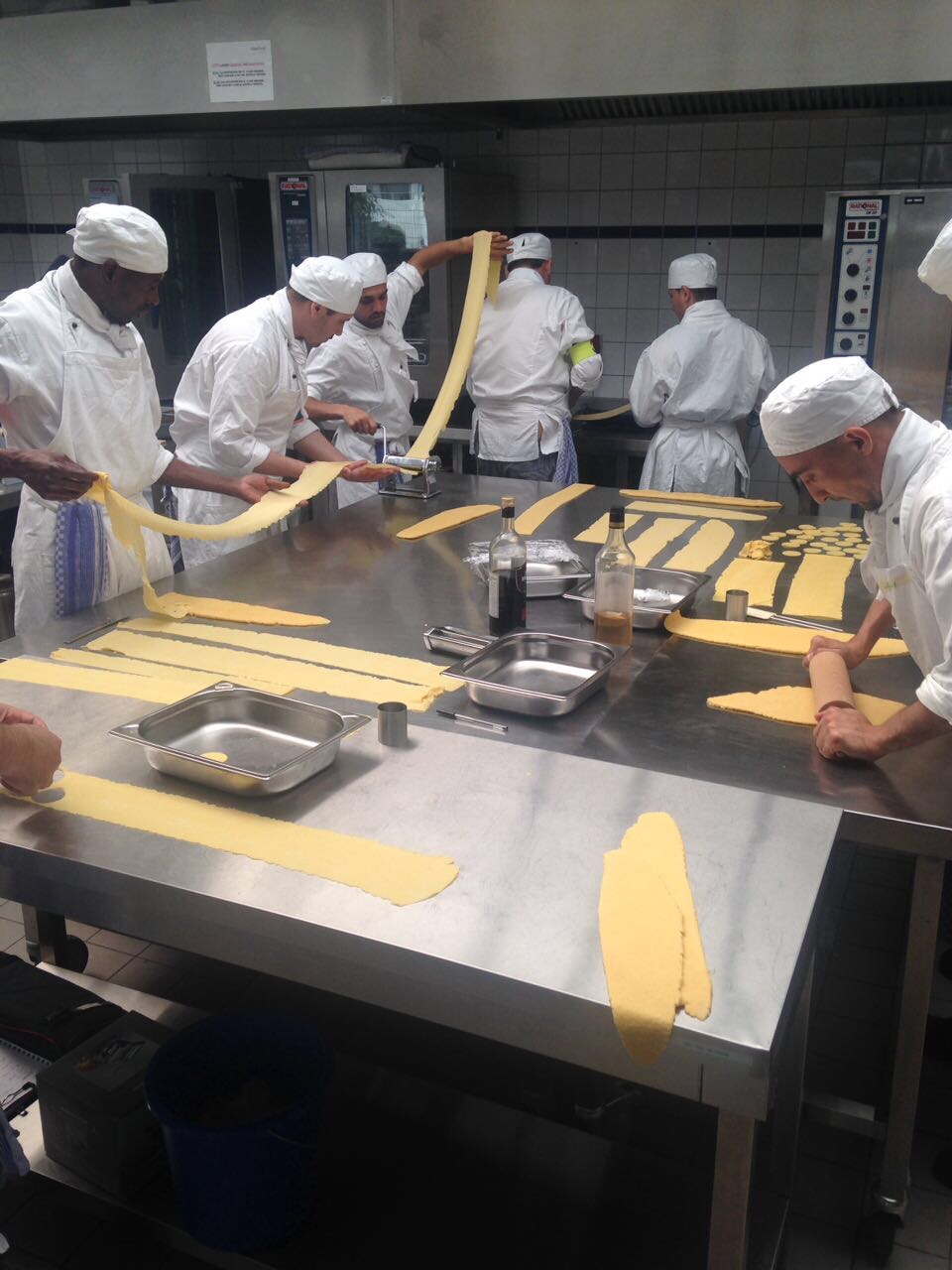



Comments (0)